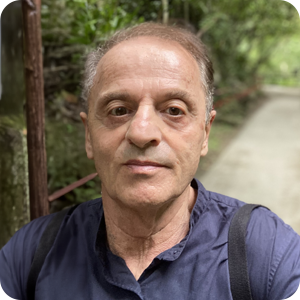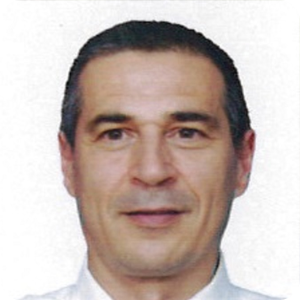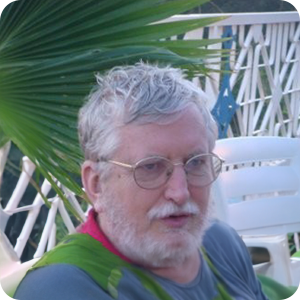Children’s well-being, health, education, and protection are the core values on which the United Nations Children’s Fund (UNICEF) designs its policies. Operating in more than 190 countries, UNICEF is the leading international organization working to advance children’s rights and well-being. With a global reputation, impactful work, and attractive benefits, it is no wonder the organization receives many applications for its vacancies. The selection process is rather challenging, comprising several interviews, assessments, and rigorous background checks. So, if you are interested in kick-starting your career with UNICEF, check out some expert advice.
Key Takeaways:
- UNICEF was founded in 1946, to provide emergency food and healthcare to children and mothers in countries that had been devastated by World War II. Today, it is one of the largest organizations worldwide; its budget for the 2022-2023 fiscal year was approximately US$8.9 billion.
- Tailored expertise relevant to the position, contextual experience in local settings, alignment with UNICEF’s mission, strong communication skills, and a solid educational background are among the top skills required to start a UNICEF career.
- Working at UNICEF provides the chance to impact global child welfare positively although it involves navigating complex bureaucratic processes and facing strong competition for each position.
See also: A brief history of UNICEF
DevelopmentAid: What skills and requirements are necessary to start a UNICEF career?

“In my personal experience, the major skills required to work at UNICEF include three main aspects:
1) Specific expertise: It is crucial to evidence the area of interest for your application. I believe that CVs that stand out have clear and obvious experience relevant to the specific assignment and avoid a generalist approach. Tailoring a CV to highlight this specific experience is essential.
2) Contextual experience: having experience in the country or region where the assignment will take place is key, including knowledge of major institutions, political and social challenges, and the geographic landscape.
3) Background knowledge of UNICEF: understanding how UNICEF operates, based on the principles of the Convention on the Rights of the Child, and recognizing the variations in how these principles are applied in different countries is very important.”

“Apart from your technical and programmatic skills which may be in several areas, be clear about the motivation for yourself and for others, recognize the need for clear, straightforward communication skills, be upfront with what you are comfortable doing and what would be a stretch, and be prepared to value and respect national officers, government counterparts, all internal and external colleagues and local communities.”

“Starting a career with UNICEF requires a strong educational background, typically a bachelor’s or advanced degree in relevant fields like international development or public health. Additionally, it’s crucial to have experience working in dynamic environments that encourage self-growth and innovation, as well as being proactive with high-level communication skills to effectively convey key messages. Teamwork is essential, as is the ability to influence and inspire change in people who may be resistant to new approaches.”

“Good listening skills, analytical skills, language proficiency, empathy and understanding, good communication skills, and the ability to work with and willingness to learn from others.”

“You can start as a UN volunteer or as an intern. Try to enroll yourself in training courses to understand what UNICEF is actually doing on the ground. Do not be afraid to ask questions and advice and always be ready to support senior professionals. Take the initiative to work with UNICEF, believe in what they do for children and youth and be prepared to be part of a wonderful teamwork.”

“The organization looks for field-experienced people, usually from NGOs, especially those who have been tested in practical relations with the assisted individuals and who are flexible in teamwork.”

“The skills required for UNICEF are stated in the adverts. Individuals with only a university degree may wish to enhance their qualifications by pursuing one or more of the following options: 1) obtaining a postgraduate degree from a reputable university, 2) gaining experience working for an NGO, 3) securing a UN Volunteer or Junior Professional Officer position in a UNICEF-supported project.”
DevelopmentAid: What are the challenges that have to be faced when applying for a UNICEF position?

“The main challenges when applying for a UNICEF position are usually linked to the extremely high competition and the bureaucratic and lengthy hiring processes. I would recommend having previous experience with UNICEF or another UN agency through consulting opportunities, or project participation. Several consulting companies or individual consultants are hired by UNICEF to carry out technical assistance projects or smaller contracts. This can provide the know-how and experience needed to eventually secure a position within the organization.”

“Applying for a UNICEF position requires a good understanding of the UNICEF core mandate, values and priorities, as much knowledge as possible about the post and the location, and be prepared for professional and personal questions.”

“Applying for a UNICEF position is highly competitive due to the organization’s prestige and impact, often necessitating candidates must meet stringent educational and professional experience requirements. Challenges also include the need to influence individuals who are resistant to change and dealing with a potentially lengthy and rigorous recruitment process that includes multiple stages of evaluation.”

“Often, a position description is written in “bureaucratic language,” making the work sound extremely difficult and overwhelming. If possible, contact someone who already does or has done similar work to see if the role is a good match for your skill set. Ensure that your application specifically addresses the criteria they are looking for, and, if possible, provide examples of how and where you have met these requirements.”

“I can assure you that there is no “predefined position”. Try to address the Terms of Reference (ToR) in your cover letter. Usually, the cover letter goes through a computerized system, and you need to pass this step. The interview follows. Do not be afraid. Prepare yourself and try to show that, as a youth, you have several years ahead of you to offer support as a worker at UNICEF. Prepare in advance on the skills needed as presented in the ToR. When it comes to previous experience, try to refer to what you did to support colleagues, when you supported training with a teacher, and remember what you have done (studying together with colleagues, doing courses for UNICEF, and other relevant activities).”

“Make it clear that you are willing to work in the field and understand the needs of people.”

“When applying for a specific position, gather as much information about it as possible. Google and AI searches often provide insights not evident in the advertisement. Try to determine the funding source for the position and the composition of the team you would potentially join.”
DevelopmentAid: How do you prepare for an interview with UNICEF?

“The best tip I could think of to prepare for an interview at UNICEF is learning about the context. The basis for any type of work developed by these agencies relies heavily on understanding the context of the country or region.”

“Know your competencies, skills and expertise well, preferably in UNICEF terms, search online for information about the post’s location, opportunities and constraints. Be prepared to talk for 1-2 minutes about yourself, about your education, background, experience, current situation and career aspirations. Be relaxed and focused.”

“To prepare for a UNICEF interview, it’s vital to thoroughly understand the role and align your experiences with the job’s requirements. Provide specific examples from your past work that demonstrate relevant skills, particularly how you’ve tackled and resolved challenges similar to those you’ll face at UNICEF. Showcasing your problem-solving abilities and how they apply to the role will be key to standing out.”

“Obtain the latest Annual Report for the country where you seek to work and understand the work and challenges UNICEF faces there. Make a list of the position requirements and note where you can demonstrate your ability to meet these. The interview panel wants to know that you understand what is needed and, hopefully, you can show that you know how to do it.”

“Recall your experience to describe fieldwork, interacting with people, and resolving team issues.”
DevelopmentAid: What are some mistakes that junior professionals make when applying for a UNICEF position?

“Perhaps not clearly adapting their CV and application to the specific position or assignment. Providing less but more targeted information is undoubtedly more effective than including dispersed and generalized information. Avoid a generalist CV and application; instead, focus on experiences and skills that directly relate to the job description.”

“Sometimes young professionals claim more expertise, experience and understanding than they have. Don’t sell yourself short but don’t overstate the truth either.”

“Young professionals often make the mistake of not tailoring their applications to highlight their main achievements and relevant experiences. They may submit generic applications that don’t clearly show how their skills and past successes align with the specific job requirements, missing the opportunity to make a strong impression.”

“Not reading the job description and criteria properly and including irrelevant work experience can hinder your application. For example, if you are applying for a field position, mentioning that you worked as a coffee barista during university holidays is not relevant.”

“Never think about mistakes. You can pass the interview by preparing yourself and showing what you can do if in the position. Do not be afraid to present your potential. Just tell the truth and be open to listening and learning a lot. Try to show how happy you would be in the position and how useful you can be for others in the office.”

“Not understanding the meanings of the questions can lead to answering them based on your own perception rather than addressing the interviewers’ intentions. Interviews with multiple staff members may serve various purposes.”
DevelopmentAid: What are the main challenges and benefits of working for UNICEF?

“In my opinion, the main benefits of working for UNICEF include contributing to the well-being and development of children worldwide, which provides a deep sense of fulfillment and purpose. Additionally, the opportunity to work in diverse locations worldwide and gain rich international experience is a highly attractive aspect. The main challenges involve achieving impactful results, which can be significant for UNICEF. The contexts in which UNICEF operates often make it difficult to be effective. National stakeholders sometimes have limited resources, affecting both the implementation and sustainability of activities.”

“The main benefits of working for UNICEF include a great, supportive team within the organization and externally within counterpart international, government, non-governmental, and community organizations; the ability to contribute towards meaningful change and development, and the ability to work with change makers. The challenges of working with this UN agency include staying focused on UNICEF program priorities and ways of working, recognizing who is really implementing the work and the organization’s supportive role.”

“Working for UNICEF comes with the challenge of supervisors who may not always have the time to train young professionals. Despite this, the benefits are significant. UNICEF fosters a supportive, people-oriented work environment, prioritizes comprehensive mental health support, and emphasizes employee well-being. The opportunity to contribute to meaningful and impactful work on a global scale makes the experience incredibly rewarding.”

“UNICEF rightly has a very good reputation in the field, and consequently, many people apply for jobs. There may be several hundred applicants for one position. Don’t give up! Working as a volunteer or with UNICEF-funded organizations can help you gain more contacts and better networking experience. Often, short-term positions are only advertised locally, so word of mouth can be beneficial.”

“You only have benefits. Colleagues are amazing, and the work is gorgeous. Think about how much you will love being involved in anything that is for children and youth.”

“Challenges include being flexible and patient while decisions are made. Only then is there a chance to be properly appraised. This requires understanding several aspects that determine the organization’s actions and strategy. Benefits include building expertise in various aspects of humanitarian action.”

“If you stay in the UN system for at least five years, you become vested in the UN pension fund. UNICEF values hard work, idealism, and expertise.”
Starting a career within UNICEF means competing for the same job with hundreds of applicants around the world. To stand out, an applicant needs to possess several abilities and skills, such as technical expertise in the field, understanding of child protection policies at both national and international levels, proficiency in project management, among many others. With DevelopmentAid’s Individual Professional Membership, you will not miss a single opportunity as you will have full access to all UNICEF’s jobs, tenders, grants for individuals, and other useful information.

